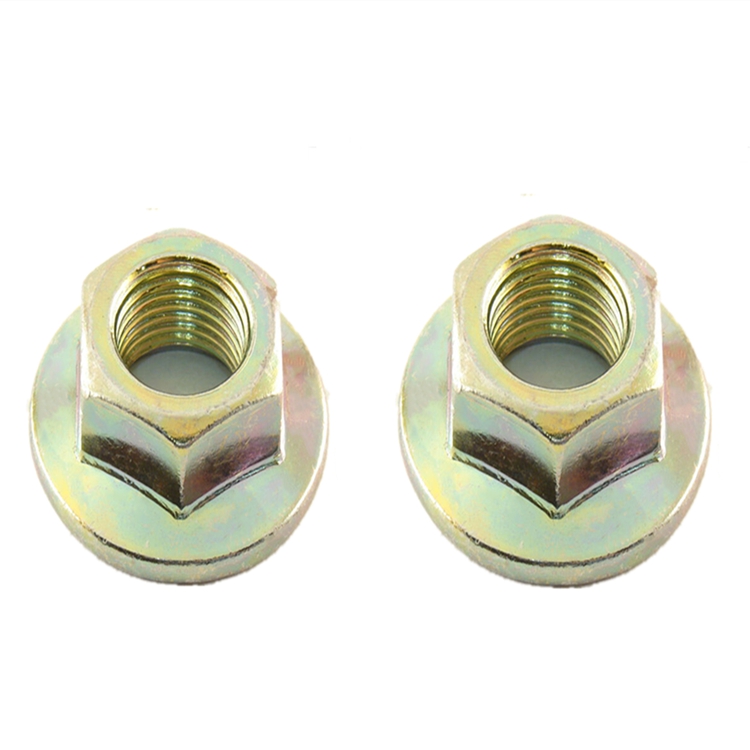Manufacturer of Precision Fine Thread Hex Nuts for Enhanced Performance and Durability
Nov . 07, 2024 16:29 Back to list
Manufacturer of Precision Fine Thread Hex Nuts for Enhanced Performance and Durability
The Importance of Fine Thread Hex Nuts in Manufacturing
In the realm of industrial fasteners, fine thread hex nuts play a crucial role in ensuring the integrity and reliability of various mechanical assemblies. These small yet essential components, typically made from high-strength materials, are designed to accommodate fine threads, allowing for a more significant engagement with bolts or screws. In this article, we will explore the significance of fine thread hex nuts, their manufacturing process, and their applications across different industries.
Understanding Fine Thread Hex Nuts
A fine thread hex nut is a type of fastening device characterized by its hexagonal shape and screw threads that are finer than those of standard-threaded nuts. The advantages of fine threads include increased tensile strength and improved resistance to stripping, which is particularly beneficial in applications subjected to high stress and vibrations. Furthermore, fine thread hex nuts allow for precise adjustments, making them ideal for applications where exact positioning is critical.
The Manufacturing Process
Producing fine thread hex nuts involves several key steps. The first stage is material selection; manufacturers typically use high-quality metals such as stainless steel, carbon steel, or alloy steel. The choice of material plays a vital role in determining the nut's performance characteristics, such as corrosion resistance, tensile strength, and hardness.
Next, the manufacturing process usually follows either a cold heading or machining approach. In cold heading, a wire is fed into a machine that shapes it into a hexagonal form while simultaneously creating threads. This method is energy-efficient and allows for high-volume production with minimal waste.
Alternatively, nuts may be produced through machining, where a solid piece of material is cut down into the desired shape and threaded using CNC (computer numerical control) technology. This approach is often used for low-volume special orders or when tight tolerances are necessary.
fine thread hex nut manufacturer

After forming, hex nuts undergo heat treatment to enhance their mechanical properties. This process involves controlled heating and cooling to improve strength and durability. Finally, nuts are often coated or treated to improve resistance to corrosion and wear, which is crucial for maintaining performance in harsh environments.
Applications Across Industries
Fine thread hex nuts are widely used in a variety of industries, including automotive, aerospace, construction, and machinery. In the automotive sector, for instance, these nuts are essential for securing components within an engine assembly, ensuring that parts remain securely fastened under the high-stress conditions typical of vehicle operation.
In aerospace applications, where weight and reliability are paramount, fine thread hex nuts provide the necessary strength while minimizing the overall weight of assemblies. Their precision and reliability are critical in applications that demand stringent safety and performance standards.
The construction industry also relies on fine thread hex nuts to secure structural components tightly. The modifiable nature of fine threads allows construction specialists to make precise adjustments during installation, which is particularly advantageous in fluctuating environmental conditions.
Conclusion
Fine thread hex nuts are indispensable components in the manufacturing sector, offering unique advantages in terms of strength, durability, and precision. With an ongoing emphasis on quality and reliability in various industries, the demand for high-performance fine thread hex nuts continues to grow. Manufacturers who focus on producing these essential fasteners with cutting-edge technology and superior materials will find themselves well-positioned to meet the needs of an ever-evolving market. As industries become more demanding, the continued innovation and development of fine thread hex nuts will undoubtedly play a significant role in the advancement of modern manufacturing practices.
Latest news
-
High-Quality Panel Stud Bolt Reliable Panel Stud Bolt Factory & Suppliers
NewsJul.08,2025
-
High-Precision Fine Thread Locknuts Manufacturer & Supplier Custom Solutions
NewsJul.08,2025
-
PH Imperial Stud Bolt – High Strength Fasteners from Leading Supplier & Factory
NewsJul.07,2025
-
High-Quality Allen Wrench Bolts Leading Factory, Company & Suppliers
NewsJul.07,2025
-
Wholesale Ball Stud Bolt - High Quality Supplier & Factory Price Reliable Wholesale Ball Stud Bolt Company
NewsJul.06,2025
-
High-Strength Alloy Bolts Manufacturer & Supplier Quality Alloy Fasteners Factory
NewsJul.06,2025
